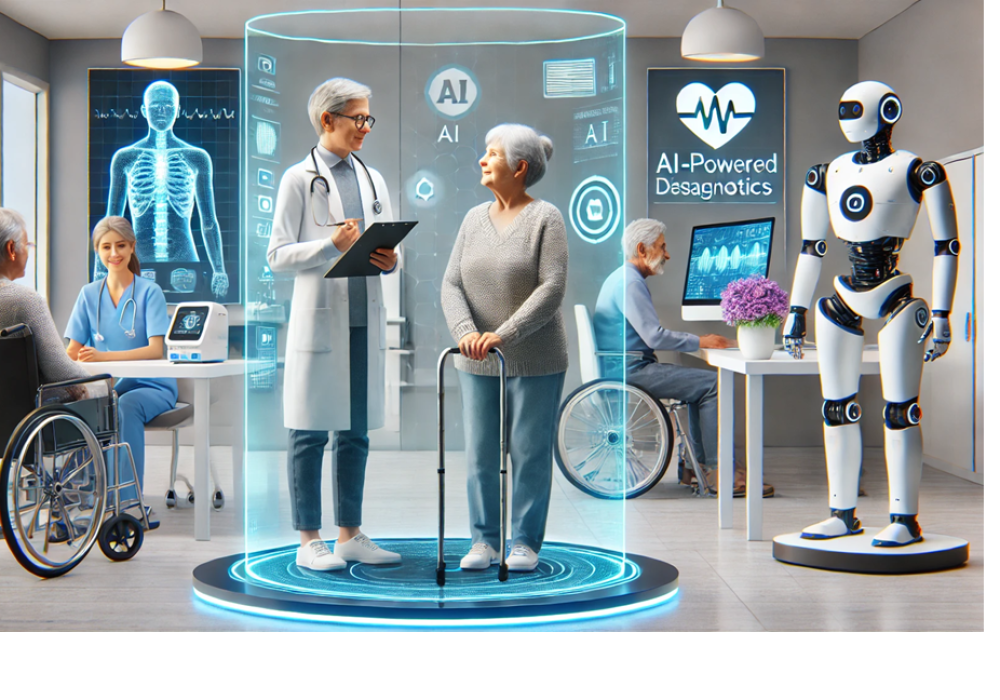The Impact of Artificial Intelligence on the Future of Senior Care - What you Need to Know

Artificial Intelligence (AI) is poised to revolutionize various sectors, with healthcare—and specifically senior care—standing to benefit significantly. As global populations age, the demand for efficient, personalized, and cost-effective care solutions intensifies. AI offers promising avenues to address these challenges, enhancing the quality of life for seniors while alleviating pressures on healthcare systems. Whether you age in place or opt for an independent or assisted living community an AI enabled device might become part of your care management team in the not too distant future
Remote Patient Monitoring and Predictive Analytics
One of the most impactful applications of AI in senior care is remote patient monitoring. AI-powered systems can continuously analyze data from wearable devices, electronic health records, and other sources to detect early warning signs of diseases, provide personalized treatment recommendations, and alert caregivers to potential health issues. This proactive approach facilitates timely interventions, reducing hospitalizations and improving overall healthcare outcomes. PubMed CentralAssisted Living Locators This also helps alleviate the need for trips to the Dr.s office for routine data gathering to monitor health.
Personalized Healthcare Recommendations
AI's ability to analyze vast amounts of data enables the delivery of personalized healthcare recommendations tailored to individual health data, preferences, and lifestyle factors. For seniors, this means customized exercise plans, nutrition guidelines, and preventive care schedules that align with their unique needs, promoting healthier lifestyles and potentially extending independence. Assisted Living Locators A customized healthcare and nutrition plan will be a huge plus for seniors ensuring that nutrition, movement and medicine are micromanaged daily to effect better health and wellbeing.
Robotics and AI Companions
Social isolation is a significant concern among the elderly, often leading to depression and cognitive decline. AI-driven robots and virtual companions can provide social interaction, cognitive stimulation, and assistance with daily activities. In Japan, for instance, researchers have developed an AI-driven humanoid robot named AIREC, capable of tasks like rolling patients, cooking, and laundry, aiming to address the shortage of aged-care workers and enhance the quality of life for seniors. en.wikipedia.orgReuters+1The Sun+1 Robots can simulate human interactions and respond with kindness and human-sounding caring. Although scary to some, a senior who might otherwise be alone much of the time could benefit from this type of simulated social interaction.
Medication Management
Adherence to medication schedules is crucial for managing chronic conditions prevalent among seniors. AI-powered systems can assist with medication adherence by providing automated reminders and monitoring systems, helping residents maintain their treatment schedules and reducing health risks associated with missed doses. snfmetrics.com
Fall Detection and Prevention
Falls are a leading cause of injury among the elderly. AI-enabled monitoring systems can analyze movement patterns to detect anomalies that may indicate a fall or predict the likelihood of one occurring. By alerting caregivers promptly, these systems ensure swift assistance, thereby reducing the severity of injuries and enhancing overall safety.
Telemedicine and Virtual Consultations
AI facilitates telemedicine platforms that enable remote monitoring and virtual consultations, improving access to healthcare for older adults, especially those in remote or underserved areas. This technology allows seniors to receive medical advice and care without the need to travel, thereby reducing the burden on healthcare facilities and caregivers. PubMed Central
Challenges and Ethical Considerations
While AI holds significant promise, its integration into senior care is not without challenges. Concerns regarding data privacy, the potential for reduced human interaction, and the need for digital literacy among seniors must be addressed. Ethical considerations, such as ensuring AI systems do not perpetuate biases and are used to augment rather than replace human caregivers, are crucial for the responsible deployment of AI in senior care. This will also likely be a new frontier for the legal profession to undertake cases of AI systems that did not perform as planned.
Conclusion
AI is set to transform senior care by offering innovative solutions that enhance the quality of life for the elderly while addressing the challenges faced by caregivers and healthcare systems. From remote monitoring and personalized healthcare recommendations to robotic companions and improved medication management, AI's integration into senior care presents a future where aging populations can enjoy increased independence, safety, and well-being. However, careful consideration of ethical implications and a commitment to augmenting human care with technology will be essential to fully realize these benefits.